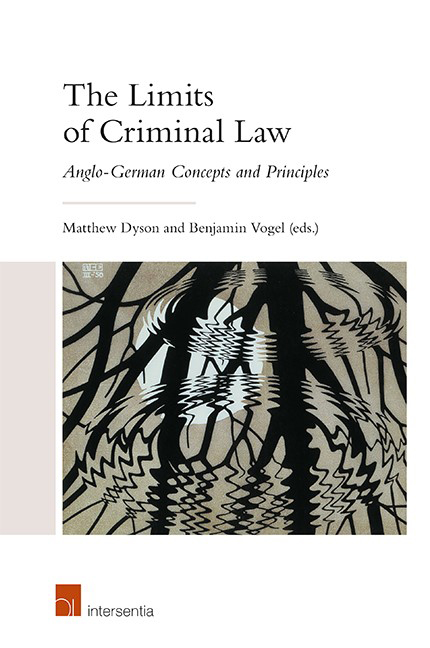Book contents
- Frontmatter
- Preface
- Contents
- List of Cases
- List of Abbreviations
- List of Contributors
- Chapter 1 Introduction
- PART I CORE PRINCIPLES OF CRIMINAL LAW
- PART II CRIME AND TORT
- PART III CRIME AND MEDICAL
- PART IV CRIME AND REGULATION
- PART V ADMINISTRATIVE SANCTIONS
- PART VI ALTERNATIVE ENFORCEMENT
- PART VII COUNTER-TERRORISM
- PART VIII CRIME AND INTELLIGENCE
- PART IX CONCLUSION
- Index
- About the Editors
Chapter 20 - Countering Terrorism at the Limits of Criminal Liability in England and Wales
Published online by Cambridge University Press: 11 February 2021
- Frontmatter
- Preface
- Contents
- List of Cases
- List of Abbreviations
- List of Contributors
- Chapter 1 Introduction
- PART I CORE PRINCIPLES OF CRIMINAL LAW
- PART II CRIME AND TORT
- PART III CRIME AND MEDICAL
- PART IV CRIME AND REGULATION
- PART V ADMINISTRATIVE SANCTIONS
- PART VI ALTERNATIVE ENFORCEMENT
- PART VII COUNTER-TERRORISM
- PART VIII CRIME AND INTELLIGENCE
- PART IX CONCLUSION
- Index
- About the Editors
Summary
INTRODUCTION
OVERVIEW
Counter-terrorism offences in English criminal law sit at the very limits of criminal liability. They stretch its boundaries back to points in time remote from the completed substantive offence by imposing liability for preparation and possession. They impose criminal liability upon those held responsible for the acts of third parties, even where the causal link is attenuated or the resulting harm is remote. They ascribe guilt by association on preventive grounds to those who may have done no more than join, worn the uniforms of, or shown support for proscribed organisations. They also expand the scope of omissions liability by creating positive obligations in respect of which ‘failure to’ fulfil the specified duty is an offence. Terrorism-related offences expand the growing class of preventive offences that are a feature of modern criminal law. Together, these categories of terrorism offence extend substantive criminal liability in diverse directions such that many of the risk factors which trigger referral to de-radicalisation programmes are also grounds for prosecution. The limits of criminalisation are further extended in practice by changes in police powers to stop, search and detain, changes to pre-trial procedure and, exceptionally, to the conduct of criminal trials. At the very boundaries of the criminal law, new forms of hybrid civil–criminal measures set conditions and restraints through the civil process but impose criminal liability for breach, so permitting criminalisation ‘by the back door’. Beyond the criminal law itself, immigration, counter-terrorism and security laws create quasi-punitive coercive measures that intrude upon rights of citizenship, membership and mobility. These laws and measures raise questions about what is and what ought to be criminal and how one should categorise preventive laws that lie beyond the limits of criminal liability. This chapter will explore the multiple complex strains consequently felt at the limits of a criminal law under pressure to counter the significant and continuing threat posed by terrorism.
The chapter begins by examining the definition of terrorism that underpins and is common to all UK counter-terrorism offences. It goes on to consider the structural relationship between counter-terrorism offences and offences in ‘ordinary’ criminal law. It elaborates a tentative taxonomy of counter-terrorism offences that explores the different dimensions – temporal, enabling, associative and omissions-based – along which the criminal law is extended by terrorism offences.
- Type
- Chapter
- Information
- The Limits of Criminal LawAnglo-German Concepts and Principles, pp. 407 - 434Publisher: IntersentiaPrint publication year: 2020



